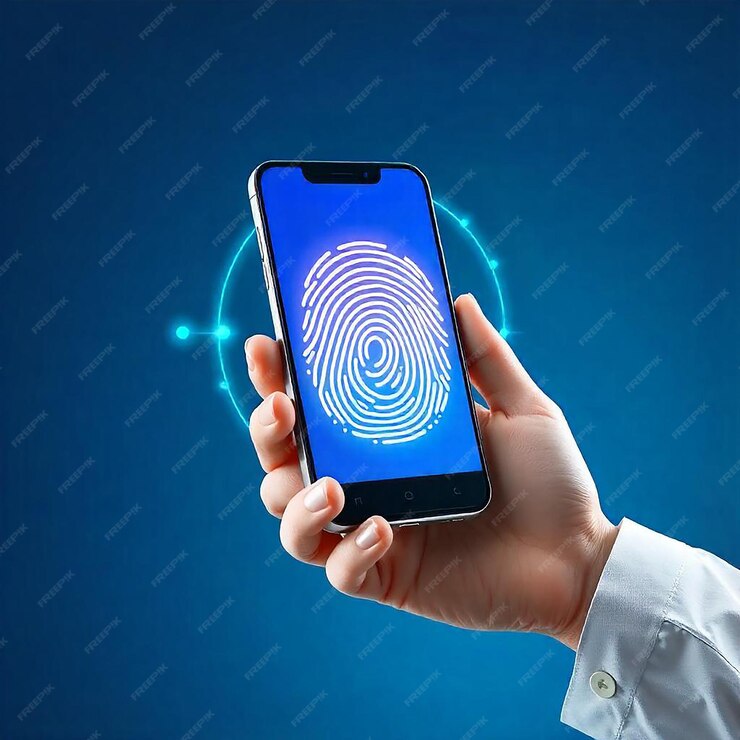Biometric security is better than traditional methods because it offers more secure and reliable authentication through unique biological characteristics such as fingerprints, iris patterns, and facial recognition. This advanced technology provides a higher level of security by minimizing the risk of unauthorized access and eliminating the need for easily replicable passwords or keys, making it a preferred choice for businesses and individuals alike.
With the growing concern for data breaches and identity theft, biometric security offers a robust solution for protecting sensitive information and assets. Moreover, biometric authentication provides convenience and efficiency by streamlining the verification process, ultimately enhancing the overall user experience.
Its accuracy and effectiveness make it the superior choice for safeguarding valuable data and assets in today’s digital landscape.

The Importance Of Biometric Security
With the increasing reliance on digital technology, the importance of robust security measures cannot be overstated. Biometric security has emerged as a game-changing solution, offering unparalleled levels of protection and authentication. This advanced form of security utilizes unique biological or behavioral characteristics to verify an individual’s identity, such as fingerprints, facial recognition, voice patterns, and iris scans. Its adoption has significantly enhanced security across numerous sectors, including finance, healthcare, and law enforcement.
Biometric Security In Modern Technology
Biometric security is intricately woven into the fabric of modern technology, serving as a pivotal component of safeguarding sensitive data and preventing unauthorized access. In the realm of smartphones, biometric authentication, encompassing features like fingerprint and facial recognition, has become the gold standard for unlocking devices and securing personal information. Moreover, industries are increasingly integrating biometric systems into access control mechanisms, bolstering security measures within corporate environments and public facilities.
The Significance Of Biometric Data Protection
Biometric data protection plays a pivotal role in safeguarding sensitive personal information from malicious exploitation. Unlike traditional security measures relying on passwords or PINs, biometric identifiers are inherently unique to each individual, offering a level of security that is nearly impossible to replicate or compromise. Furthermore, biometric authentication ensures seamless and user-friendly access, eliminating the need for complex memorization of passwords and reducing the risk of unauthorized access or identity theft. Its significance in data protection cannot be overstated, as it serves as a robust defense against fraudulent activities and unauthorized breaches.

Credit: www.aratek.co
Advantages Of Biometric Security
Enhanced Security Measures
Biometric security offers enhanced security measures by utilizing unique biological traits such as fingerprints, facial recognition, or iris scans to authenticate individuals. Unlike traditional password-based systems, biometric data is incredibly difficult to replicate or forge, providing a higher level of security against unauthorized access.
Reduction In The Risk Of Identity Theft
One of the notable advantages of biometric security is the significant reduction in the risk of identity theft. By relying on individual biological features for authentication, biometric systems ensure that each identity is unique and cannot be easily compromised. This reduces the likelihood of fraudulent activities and unauthorized use of personal or sensitive information.
Types Of Biometric Security
When it comes to securing sensitive data and ensuring the safety of premises, biometric security offers a highly effective and reliable solution. Biometric security relies on the unique biological characteristics of individuals, making it a robust form of authentication and identification. There are several types of biometric security technologies that are widely used in various sectors. Here, we will explore the different types of biometric security systems, including fingerprint recognition, facial recognition technology, and iris scanning technology.
Fingerprint Recognition
Fingerprint recognition is a biometric security method that analyzes the patterns of ridges and valleys on an individual’s fingertip for authentication purposes. This form of biometric security is popular due to its high level of accuracy and convenience. By capturing the unique ridges and minutiae points on a person’s fingertip, fingerprint recognition systems can accurately verify the identity of the user.
Facial Recognition Technology
Facial recognition technology leverages advanced algorithms to map and analyze an individual’s facial features, such as the distance between eyes, nose, and mouth, for identification. This biometric security method has gained widespread attention due to its non-intrusive nature and high accuracy. Facial recognition technology is utilized in various applications, including access control systems, surveillance, and mobile device authentication.
Iris Scanning Technology
Iris scanning technology is a highly secure form of biometric security that utilizes the unique patterns in the colored part of the eye, known as the iris, for authentication. The distinctiveness and stability of iris patterns make this technology extremely accurate and difficult to spoof. Iris scanning systems capture high-resolution images of the iris and use sophisticated algorithms to verify the individual’s identity.
Implementing Biometric Security
Biometrics In Smartphones And Mobile Devices
In today’s digital age, biometric security has become increasingly prevalent and essential for smartphones and mobile devices. With the integration of fingerprint scanners, iris recognition, and facial recognition, biometric authentication provides a secure and convenient way for users to access their devices and sensitive information.
Biometric Access Control In The Workplace
Biometric access control systems are revolutionizing workplace security by offering a more reliable and efficient alternative to traditional methods such as keys, access cards, and PIN codes. By utilizing unique biological traits, such as fingerprints or facial features, organizations can ensure only authorized personnel have access to restricted areas, sensitive data, or secure facilities.
Frequently Asked Questions For Why Is Biometric Security Better?
Why Is Biometric Security More Secure?
Biometric security is more secure because it uses unique physical characteristics, like fingerprints or facial features, for authentication. This makes it harder for unauthorized access and reduces the risk of identity theft. Biometric data is also difficult to replicate, adding an extra layer of protection.
What Are The Advantages Of Biometrics?
Biometrics offer enhanced security through unique personal features like fingerprints and facial recognition. They provide convenience, accuracy, and efficiency for access control and identification processes. With biometrics, there’s minimal risk of identity theft and it can streamline authentication in various industries.
What Are The Advantages Of Biometric Security?
Biometric security offers unparalleled accuracy and reliability, making it nearly impossible for unauthorized users to gain access. This advanced technology also eliminates the need to remember complex passwords and provides a seamless user experience.
How Does Biometric Security Protect Against Fraud?
Biometric security uses unique biological features such as fingerprints or facial recognition to verify identity, making it extremely difficult for fraudsters to replicate. This advanced level of authentication ensures that only authorized individuals have access to sensitive information or physical locations.
Conclusion
Biometric security offers a high level of protection through unique individual features, minimizing the risk of unauthorized access. From fingerprint and facial recognition to iris scanning, this technology enhances security while providing convenience for users. With its advanced capabilities, biometric security is the superior choice in safeguarding sensitive information and assets.

